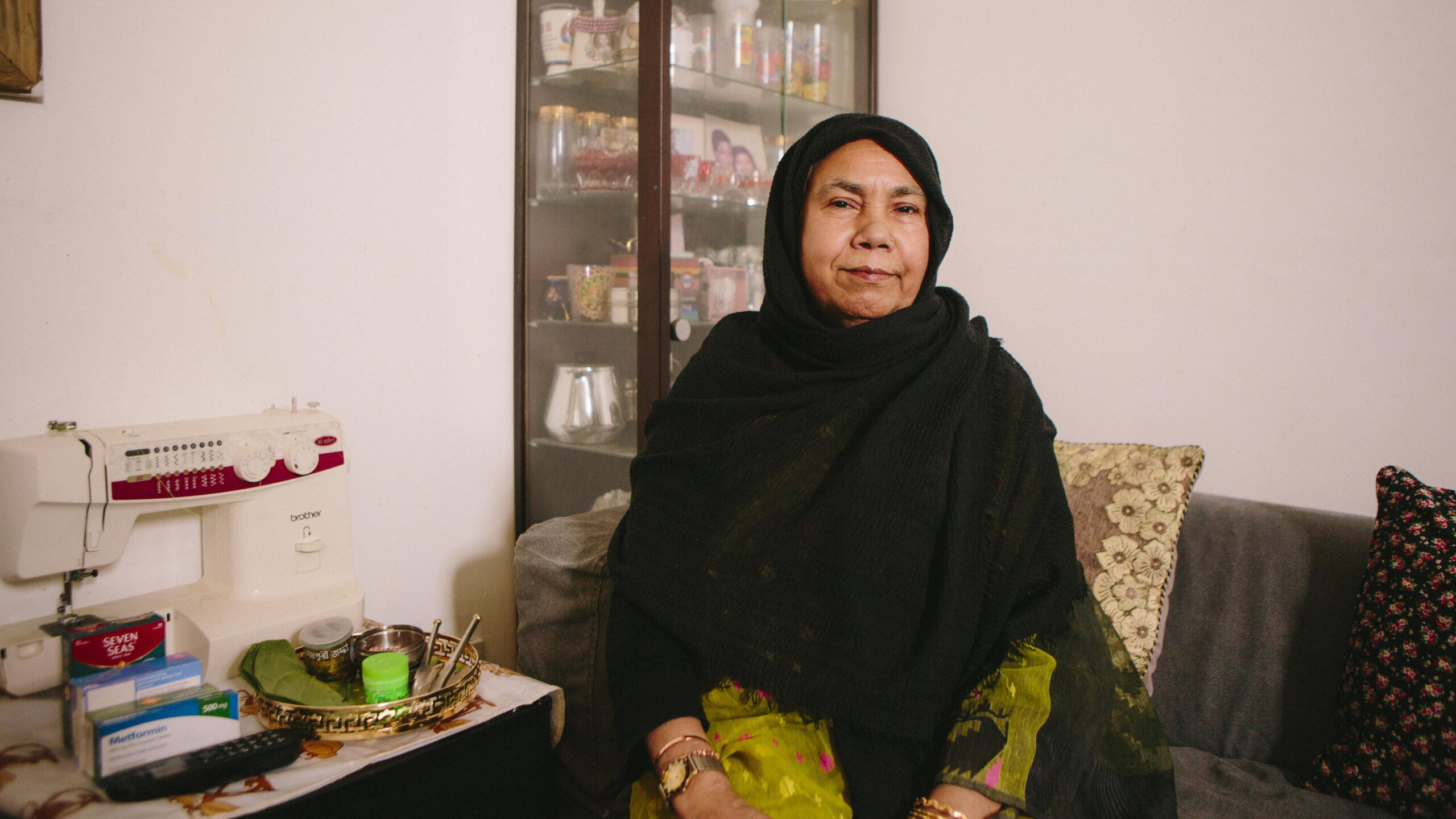AMMA writer Kamal Kaan shares his thoughts about the process of writing the script for this Virtual Reality experience and what audiences can expect to see.
What is AMMA?
Amma is an immersive play that is presented physically and in Virtual Reality – on stage – at Tara Theatre.
What was the inspiration behind it?
The play is inspired by oral testimonies from women around the UK and a creative provocation by director Abdul Shayek, to create a piece of work that gives voice to the unheard stories, focusing on the experiences of the War of Independence for Bangladesh. The play deals with the themes of migration, family, love and war. The play is a fictionalised re-telling of the testimonies along with the stories and testimonies from my own and Abdul’s mother. It’s a very personal piece for the both of us and we are very excited about audiences experiencing this experimental piece of theatre.
What makes AMMA unique?
Amma is unique as it’s a play with characters and actors but presented in an unexpected way. The audience get to experience the story through the combination of a physical installation but also through a virtual reality headset. This allows the audience to be transported in a way that allows them to travel beyond the actual space of Tara theatre.
What was the process of writing AMMA like?
The process of writing Amma began by listening to the testimonies collected in workshops from women around the UK. From this, I distilled the testimonies into a series of characters and then further distilled this down into a small number of characters whose story we follow in the show. It was a great experience working in collaboration with Abdul, who also was a dramaturge on the script, giving notes and editing the drafts of the script. I enjoyed this collaborative process, as writing if often a very solitary experience and because we both had lived experiences of this world, it was great to bounce the ideas and be inspired by each other’s own stories. There was much joy and also a fear tears shared in the writing of the script.
What are some of the challenges you encountered in creating a 360 VR piece like AMMA?
The Virtual Reality aspect of the show was developed with the helped of the Virtual reality department at The National Theatre. It was great being steered and advised by them, as it was very new territory. Virtual reality is often simply presented as a film, but we have created something that is a hybrid experience for a live theatre audience that plays with how the form works.
Describe AMMA in 3 words?
Heart-rendering, unique, immersive.
AMMA has been filmed in Bangladesh and UK, what was it like working across two continents to bring this story to life?
Part of the production was created in Bangladesh. It’s amazing to thing the production was created between two continents, two different time zones and two different landscapes. It was important for a story that is also about Bangladesh, that the country itself was represented truthfully. Also, it was great to work with artists in Bangladesh to craft the piece, it truly was an international effort!
What will audiences gain from seeing AMMA?
I hope that audiences are given an insight in to a world that they haven’t explored before, giving them an opportunity to experience theatre in a non-traditional way, where they become the performers to an extent. Audiences will literarily break the forth wall and inhabit the space that is traditionally where the actors would be.
Why is AMMA important now?
Myself and Abdul are both second-generation British-Bangladeshi’s and it’s so important to see work that is created by artists like us. There’s very little representation of British-Bangladeshis on the British Stage and the first recorded accounts of Bangladeshis living in the UK date back to the 1700s. It’s also important to highlight the historical significance of Bangladeshi’s War of Independence – with isn’t taught in the UK curriculum, but very much because of the role of the British Empire and the East India Company in that part of the world. I also hope it brings more awareness of the presence of British-Bangladeshis and the how the impact of colonialism is still felt today by the second and third generation living in the UK.
Kamal Kaan writes for stage, screen and radio. Listed in Prolific North’s top scriptwriters of 2017. After reading Architecture at The University of Cambridge he completed an MA in TV Fiction Writing at Glasgow Caledonian University. He completed the Royal Court Young Writers programme led by Mike Bartlett, The Emerging Writers Group 2016 (Bush Theatre).
Kamal was script and story consultant on double BAFTA nominated Ali + Ava (2022) written and directed by Clio Barnard, having its world premiere at Cannes 202. He is part of the development and Writersroom on The Secret Lives of The Amir Sisters (BBC). Kamal also recently wrote the critically acclaimed and after we sailed a thousand skies for the Leeds Playhouse, Aaliyah: After Antigone for Freedom Studios. He is currently writing on Dance School for Channel 4.
